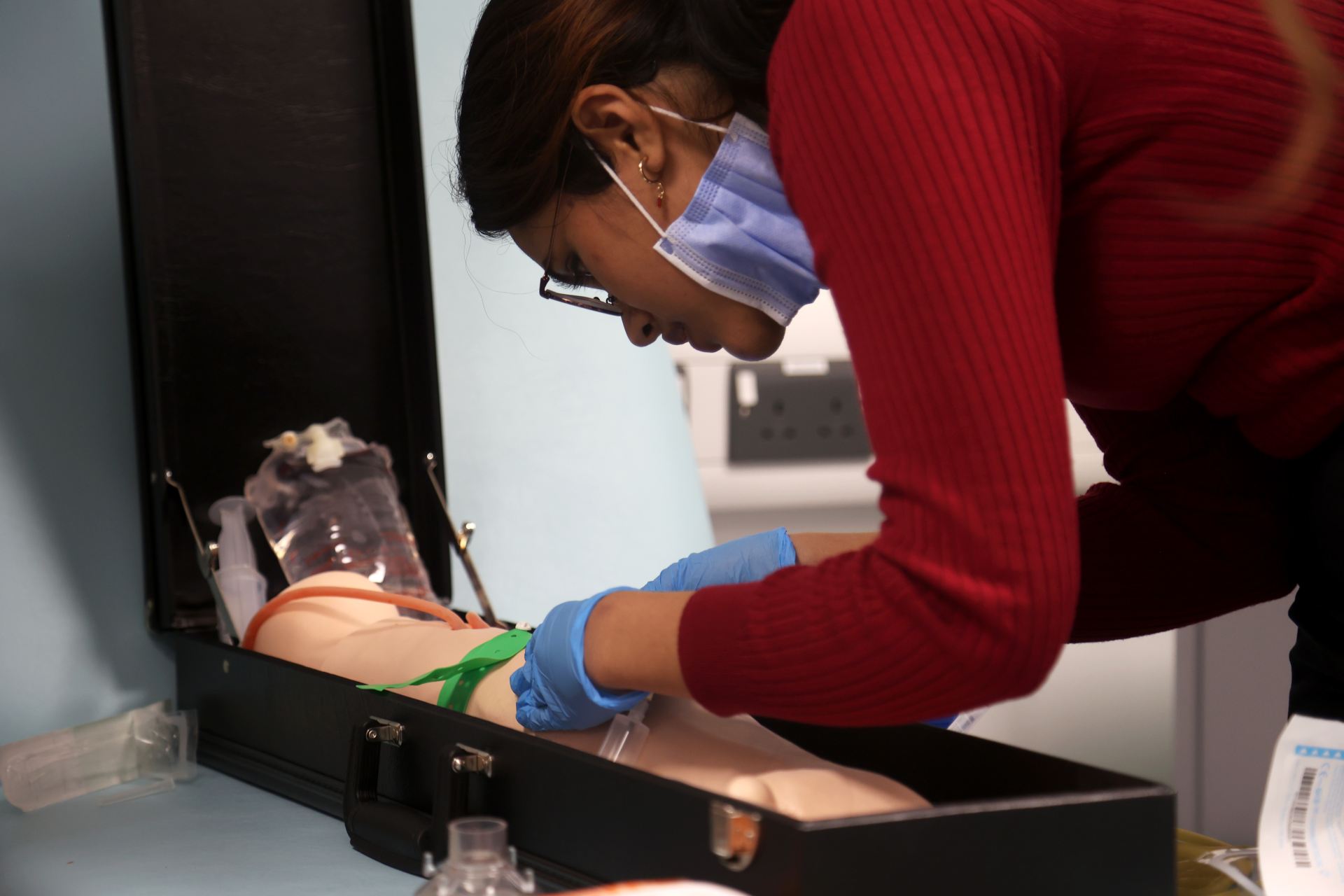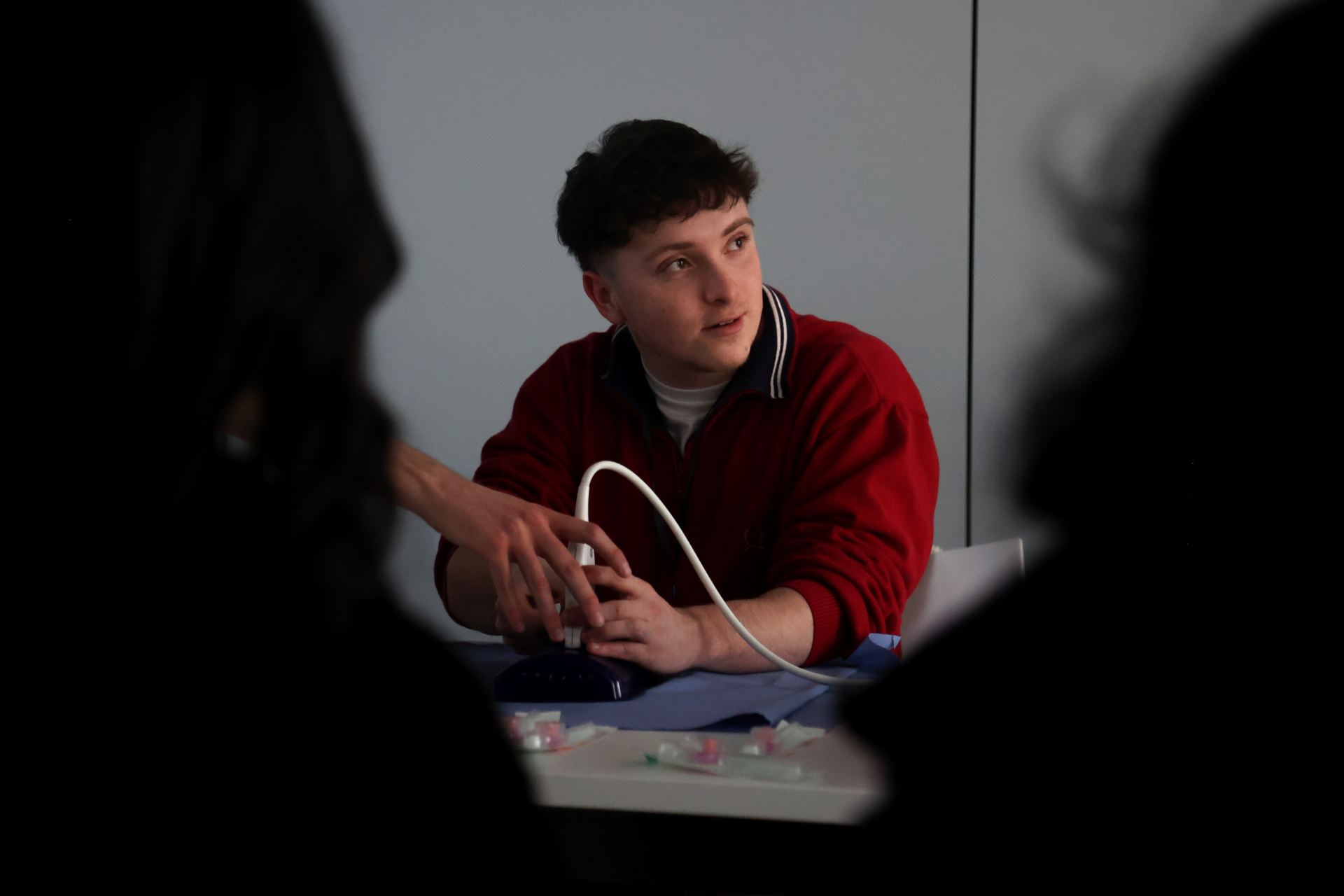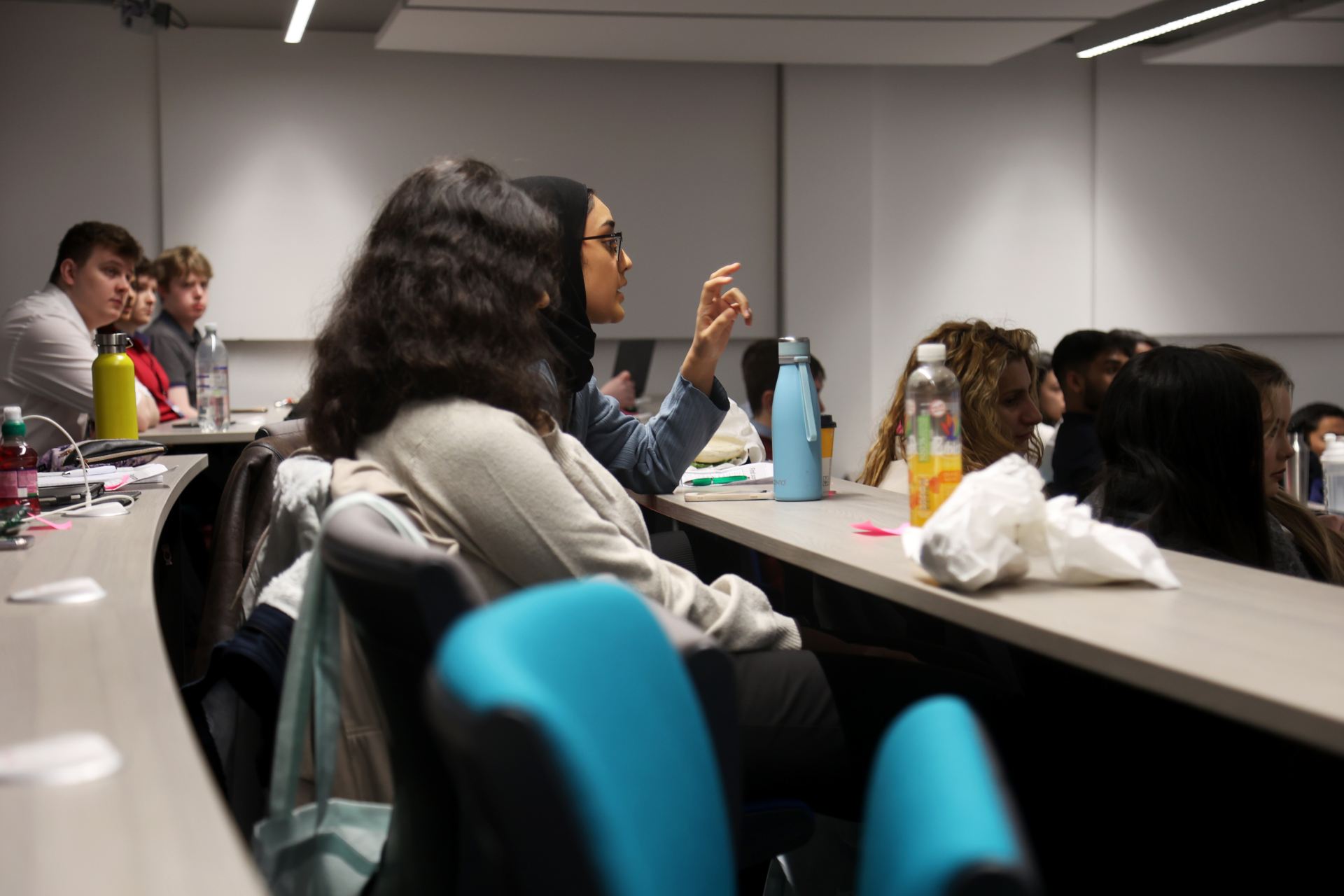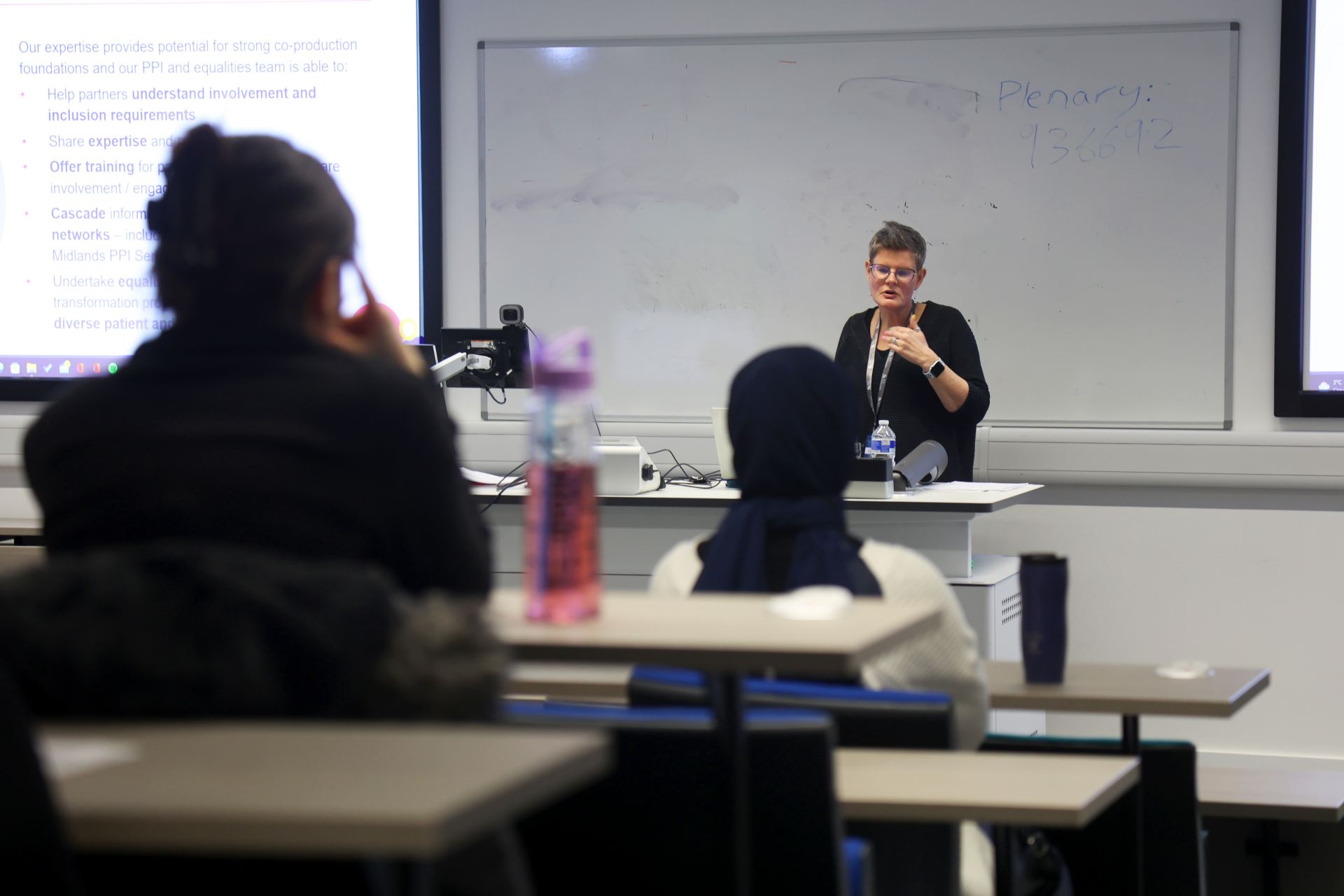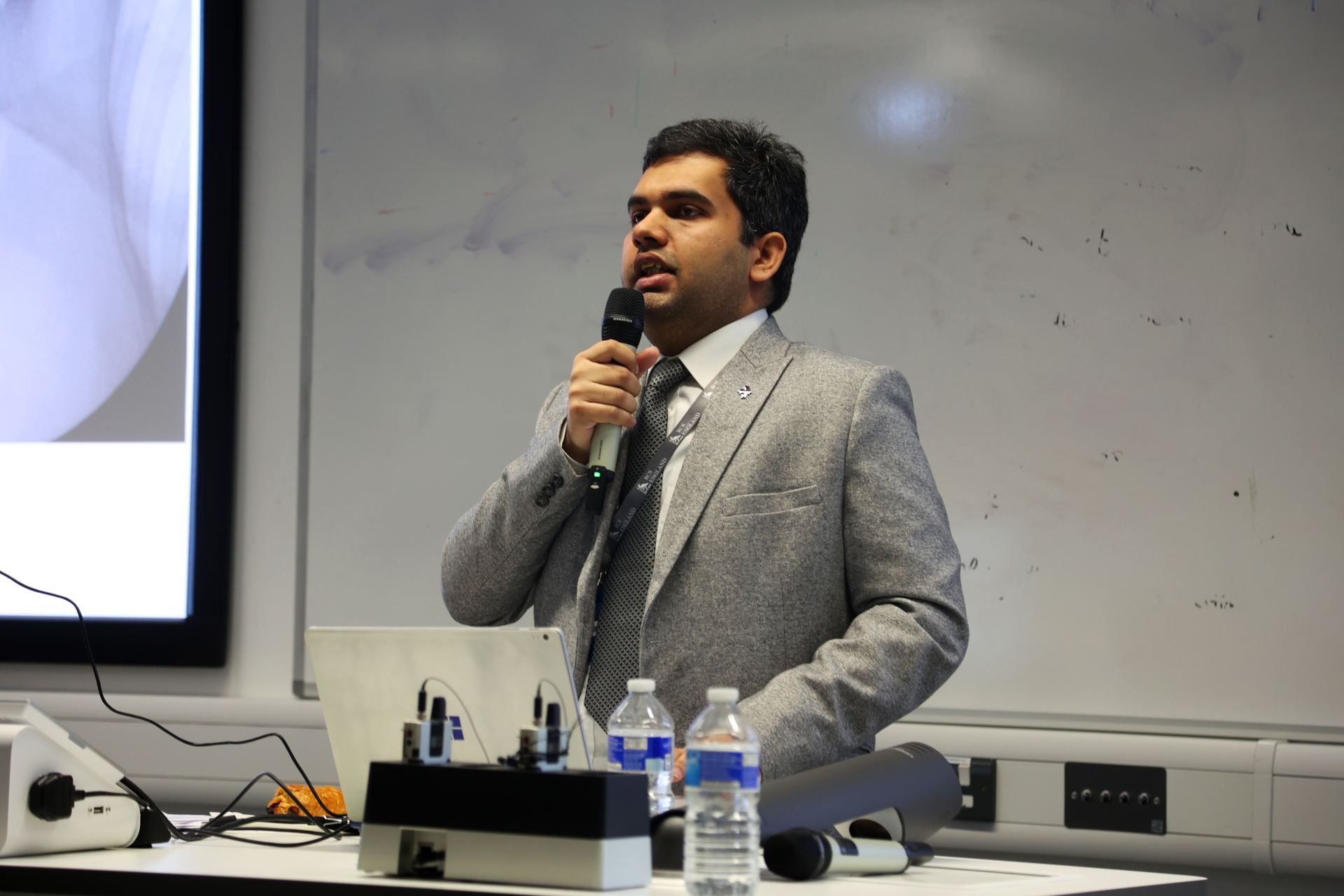‘Lincoln Street Medics’ Lead Conference to Help Make Lincoln Medical School a Sector Leader
4 April 2023
Written by: vsimons
The Ross Lucas Medical building, officially opened earlier this year, saw the first ever student-led medical conference in Lincoln take place on the theme of ‘Innovations in Medicine’.
The Ross Lucas Medical building, officially opened earlier this year, saw the first ever student-led medical conference in Lincoln take place on the theme of ‘Innovations in Medicine’.
Lincoln Street Medics, a society of medical students from the University of Lincoln, UK chaired the landmark event which comprised of talks led by industry experts from across the UK, practical workshops and networking opportunities with high-profile attendees.
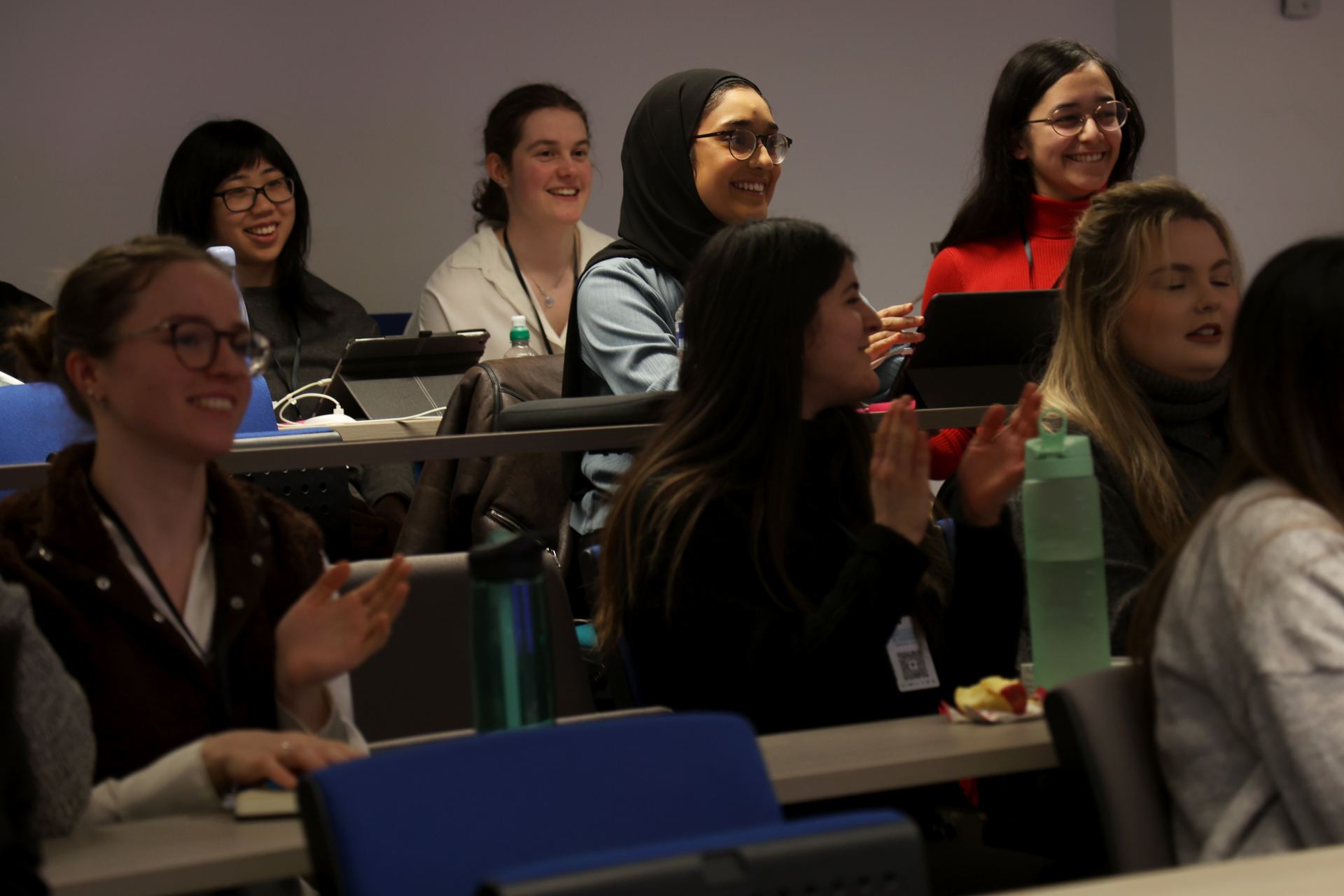
Shumile Chishty, President of Street Medics and Conference Co-Lead said: “One of our main objectives was to encourage attendees to think beyond their traditional career path. As a team of medical school students in Lincoln, we hoped to inspire our peers with innovative ideas that could make a significant impact on the healthcare industry.
“Ultimately, our goal is to make Lincoln Medical School one of the most prominent medical schools in the UK. We firmly believe that it all starts with inspiring and motivating our students, which is why we are passionate about creating opportunities for innovative thinking and collaboration.”
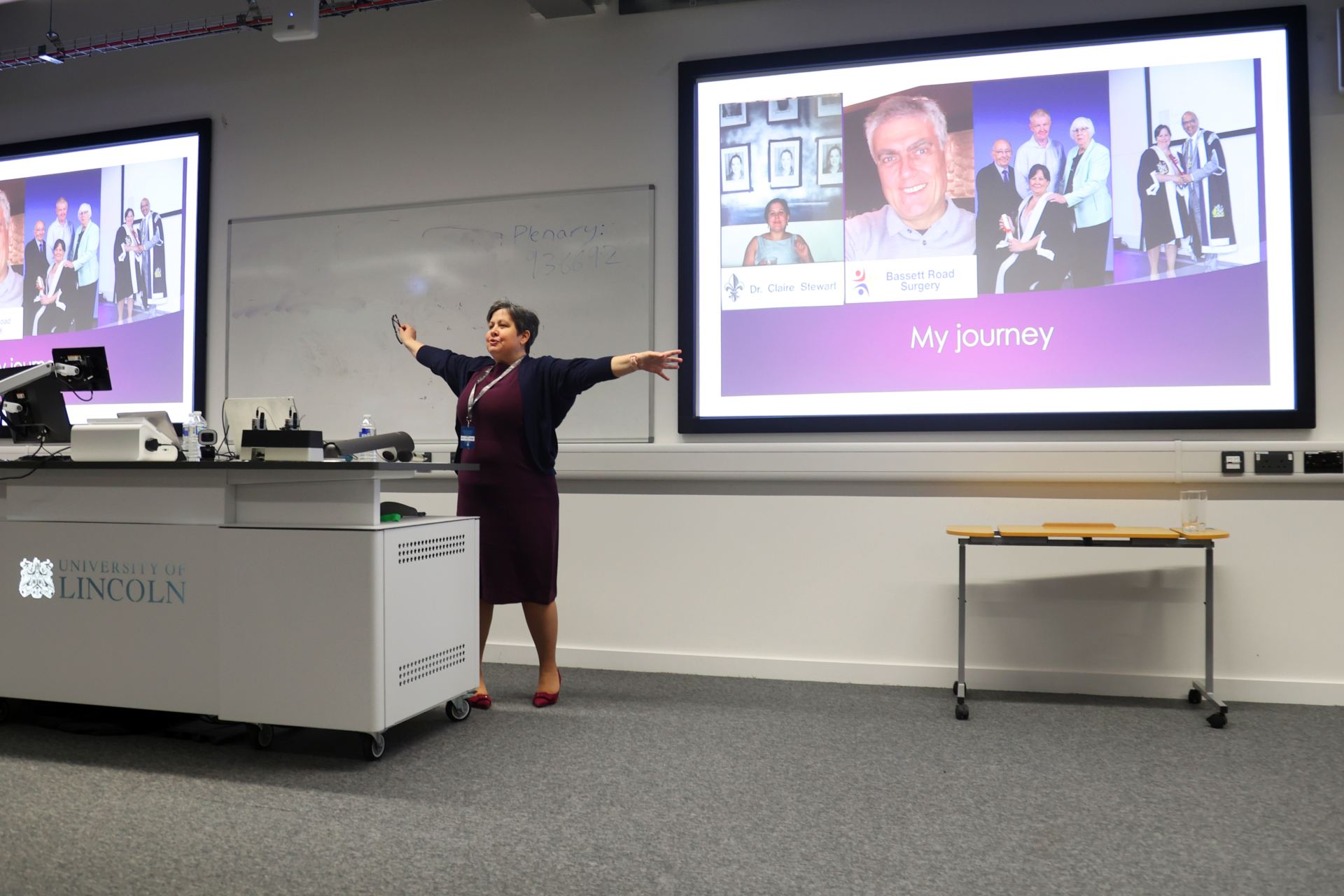
The unity between Lincoln and Nottingham’s medical schools was celebrated with the first speaker, Professor Claire Stewart, Head and Dean of Nottingham Medical School. Claire first expressed her admiration for the work of the conference team before describing the journey of her career, highlighting particular events that changed her along the way.
External speakers showcased a variety of different healthcare careers that centred around this theme of innovation. From technological inventors to social media educators, the Lincoln students were exposed to the wealth of varied paths available to them after graduating from their courses.
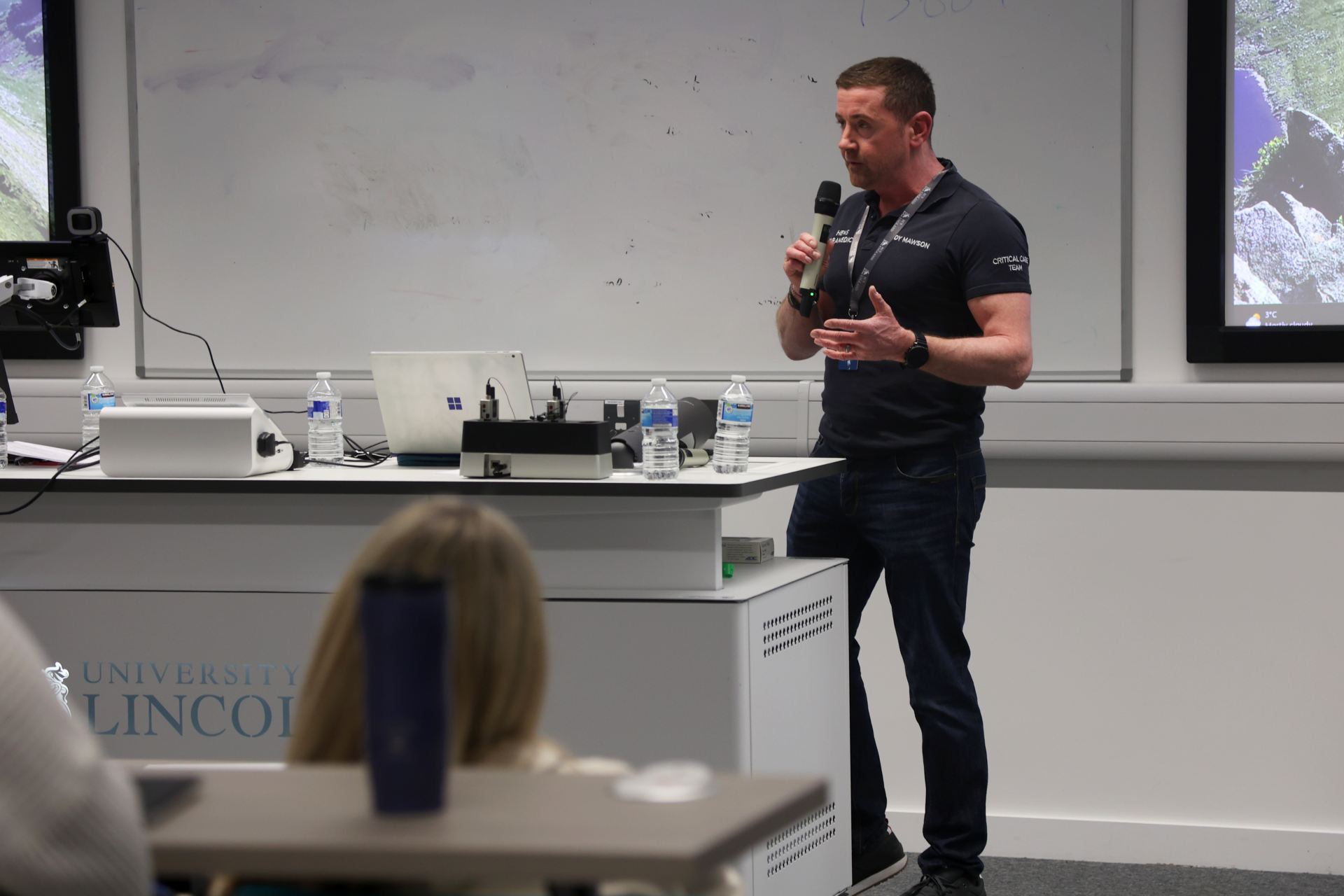
Andy Mawson, Director of Operations for the Great North Air Ambulance Service delivered a captivating talk on his work to introduce Gravity jet suit technology into mountain rescue practices in a bid to slash the time taken to reach people in need of urgent care in mountainous areas. A trial run revealed that the jet suit could reach a mountainous area in the Lake District in just 4 minutes compared to the 50 minutes’ walk a mountain rescue team would have to embark on.
Significant obstacles to this technology’s implementation remain, largely surrounding the uncertain amount of time it would take to train people to use the technology to a level of competency. Yet, Andy uncovered an innovation with incredible life-saving potential which initiated a dynamic Q&A session exploring the complex process of bringing improvements into healthcare practices.
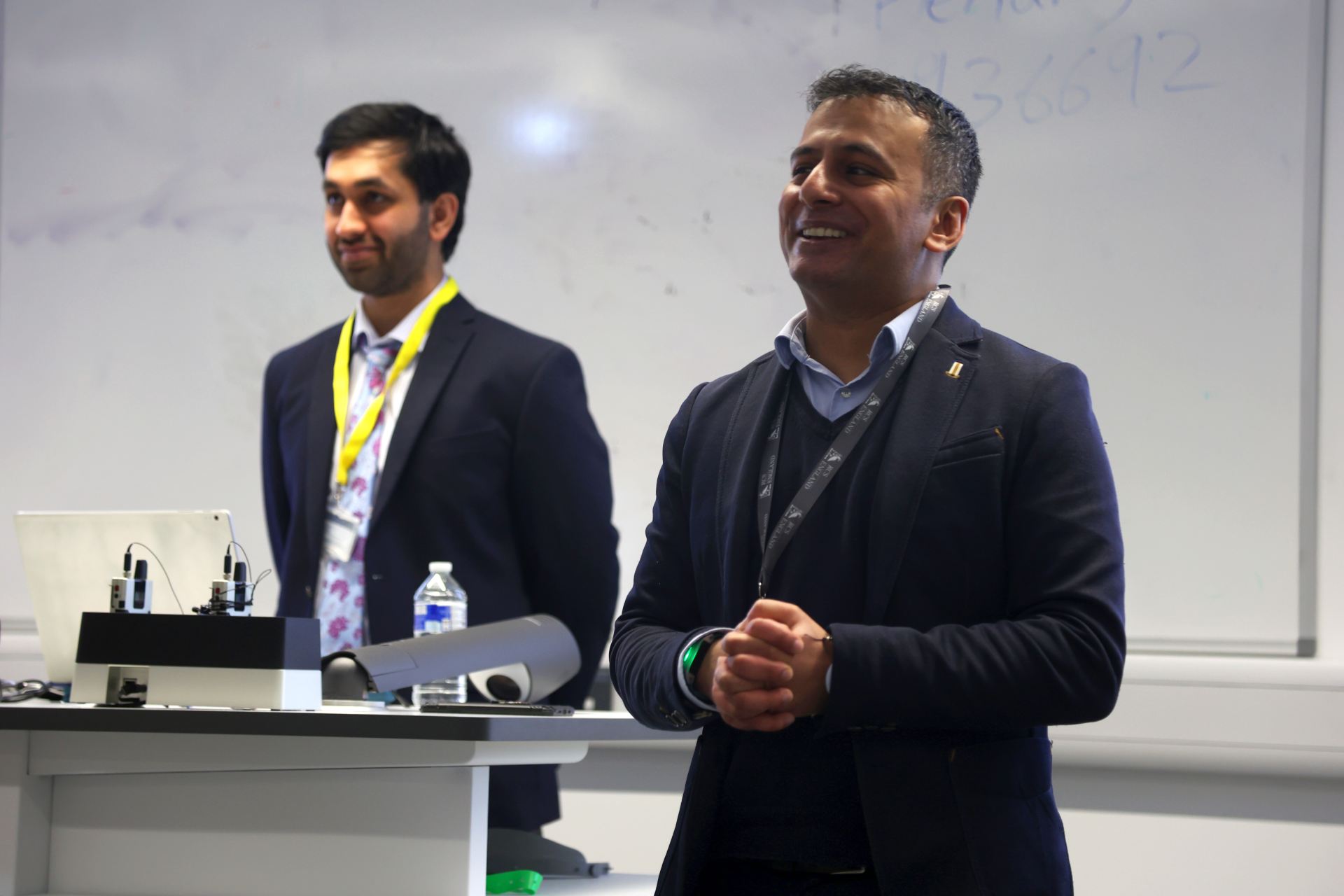
Each speaker remained available for students to speak with informally during breaks to share knowledge further and answer individual questions. Moreover, they each openly provided their contact details at the end of their presentation in an effort to welcome future collaboration with Lincoln Medical School.
William Baker, a fourth-year medical student, commented: “The day was inspiring for me; from listening to admirable speakers making progress with medical technological advancements and my favourite part of the day – learning new practical skills such as ultrasound guided cannulation and cricothyroidotomy. The conference was hugely successful and the first of many.”
Practical and academic workshops began after lunch and included a hands-on ultrasound and guided vascular access workshop and a venepuncture and cricothyroidotomy wet workshop.
Shumile closed the event with the rousing words: “We walked in as students; most will be walking out as potential future innovators in healthcare”.
